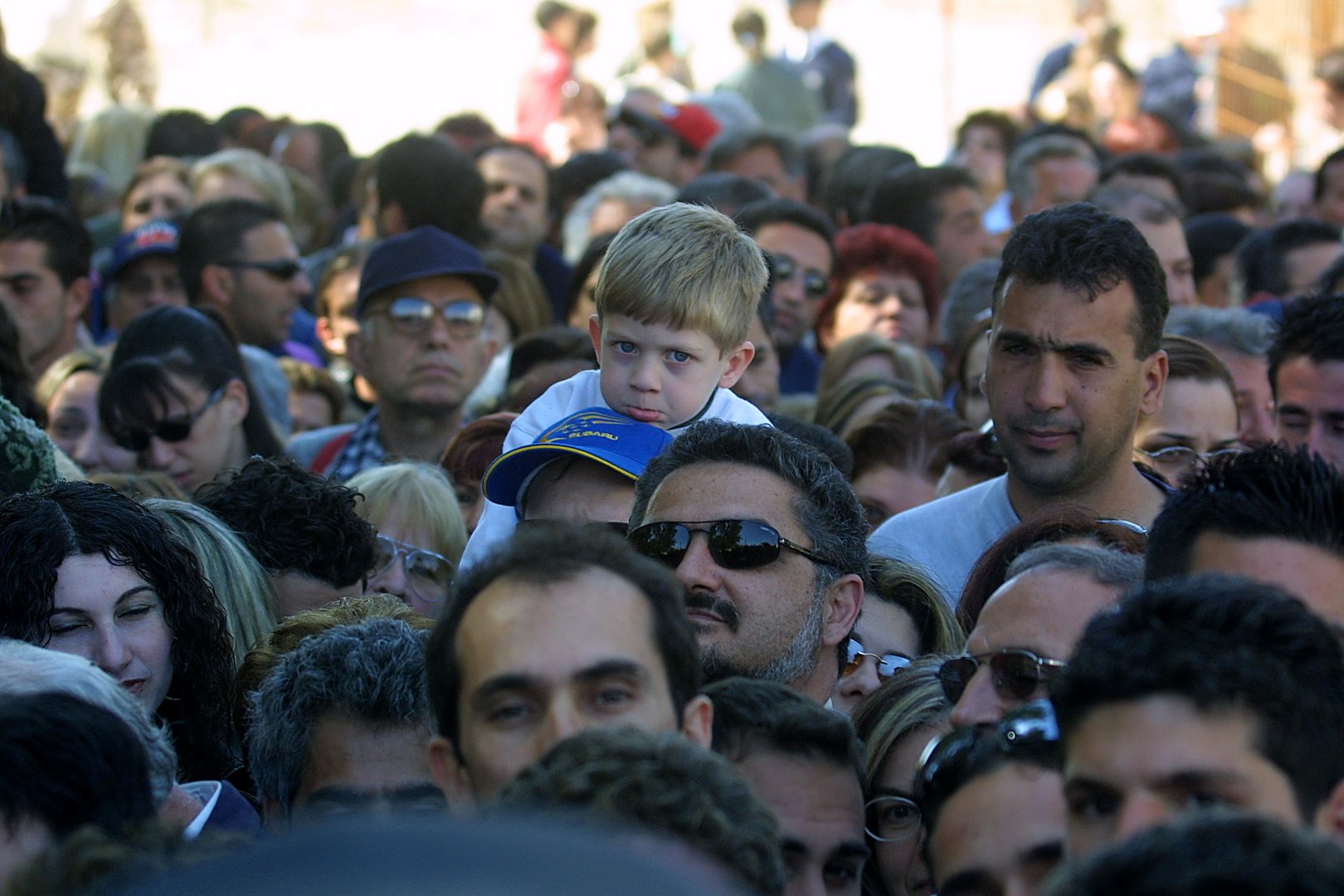And the church’s role in schools ensures it will stay that way
By Fahri Zihni
My late mother was born in the village of Tera, Paphos in 1924 to a poor family, and brought up in Nicosia by her well-to-do adoptive parents. To escape the summer heat, she, and other young children would be taken on holiday to enjoy the temperate climes of the beautiful village of Kakopetria where they enjoyed playing with Greek Cypriot children. However, all was not always well. She told me that when the children fell out with each other over play, as protest, the Greek Cypriot children would draw a crescent and star on the ground and spit on it, and Turkish Cypriot children would draw a cross, and spit on that.
More recently, I was reading about two boys becoming friends through online gaming. But one day, the Turkish Cypriot boy told his father that Greek Cypriots must be crazy. Why? Because, he said, my friend knows that I was born in Cyprus, but he told me that I am not a Cypriot because to be a Cypriot one has to be Greek.
Lots of people have been trying to solve the “Cyprus problem” as if it was an algebraic equation, with a determinable answer. The obvious truth is that if children are brought up with mistrust, fear, anger and prejudice, this will surely result in continued enmity between communities. Unless this generational cycle is broken, the prospects for a solution are slim.
Corruption of innocence and inculcation of racial malice in young children is an abominable trait of the grown-up world. How does this happen? How does one stop it?
Sadly, we see videos of very young Greek Cypriot school children in front of a map of Cyprus with blood dripping down from the north.
The history of Greece is not the history of Cyprus. Yet, in Greek Cypriot school textbooks, there is a blow-by-blow account of the tragic and bloody events which took place some 200 years ago between the Greeks of Greece and the Ottomans.
Unlike most countries in Europe, the Greek Orthodox Church, which has a strong nationalist outlook, has a permanent seat on the education council of the state and exerts significant influence on the curriculum. This curriculum has been challenged by many progressive Greek Cypriots, one researcher expressing her exasperation by saying that the teaching of history has not changed since 1821 (date of Greek independence). She was pilloried for that.
There were questions raised at the time Cyprus joined the EU and the Republic of Cyprus Committee for Educational Reform concluded that the education system was “Helleno-ethnocentric and religious in character and culturally monolithic”, and suggested changes. However, following strong objections from the church, little has changed.
Sharing many of the ideals of the church, the ultra-right Elam party also exercises influence on schools. It has, for example, driven through government resolutions to institute a day of annual commemoration for the Greek Cypriot church referendum of 1950, which demanded the annexation of Cyprus to Greece. This was enacted in 2017, and every school needs to comply with it. The same day also exalts the Eoka nationalist “freedom fighter” militia which was responsible for many fatal attacks on Turkish Cypriot civilians during the 1950s and 1960s. Yet, the aspiration for such an annexation is anathema to all Turkish Cypriots, and Greek Cypriots who want unification between the two communities instead.
Official history textbooks used in Turkish Cypriot schools could not be more different. These do not cover the history of Turkey except for events which are directly relevant to Cyprus, or cover the lifetime of Mustafa Kemal Ataturk.
Also, in terms of governance, Ataturk’s reforms during the 1930s were also adopted in Cyprus and these made a clear separation between the role of the state and religion. Consequently, in Turkish Cypriot schools, religious authorities have had no influence on teaching for the past 90 years. It is, however, noted that one state affiliated college does have lessons in Arabic language and Koranic studies in addition to the mandatory syllabus, and this has been a controversial subject of debate.
Turkish Cypriot textbooks up to the age of 13 make virtually no mention of the tragic points of violent conflict between the two communities. For example, there is no historical account of the 1963-4, 1967 and 1974 conflicts. Although this approach avoids disaffection through omission, it flies in the face of the tried, tested and proven approach of “truth and reconciliation”.
From the age of 14, there is good coverage of the recent historical events from the Turkish Cypriot perspective, but these are surprisingly neutral in tone and show no malice towards Greeks or Greek Cypriots.
It is noteworthy that there is a school in the north to cater for some 45 Greek Cypriot resident students, staffed by Greek Cypriot teachers, but no such equivalent exists for Turkish Cypriots living in the south. Should the identical needs of these Turkish Cypriots not also be met quid pro quo? It is also a concern that Turkish Cypriot secondary schools offer the teaching of Greek language, but this is also not reciprocated by the Greek Cypriot schools.
The Association for Historical Dialogue and Research was very active in the idealistic days of the United Nations “Annan Plan” (2004), and facilitated many platforms for conversation between the two communities. However, given the above obstacles, no progress has been made in agreeing a common narrative for a common history.
In April 2003 the Turkish Cypriot side opened a crossing point to the south, followed by the Greek Cypriot side opening their side a few weeks later. This has perhaps been the most important change in terms of inter-communal relationships, with millions of crossings now each year in both directions. This has allowed both populations to interact with each other in a positive way, and observe the fact that they are all humans, sharing the same human values on the same island.
Sadly, since the openings, there have been dozens of documented incidents of assault on Turkish Cypriots in the south by Greek Cypriots, and we are aware of many more unreported cases. There have been virtually no such incidents on Greek Cypriots visiting the north.
We can only ponder if these violent attacks on Turkish Cypriots, including the latest one on Asya Karaali would have happened at all, had the perpetrators received the same non-confrontational education in their schools as the north, and were less influenced by regressionist clerics.
Fahri Zihni is former chair of Council of Turkish Cypriot Associations (UK) and former chair of Embargoed.org, a human rights group which campaigns against the embargoes on northern Cyprus. He is a former policy advisor at the UK’s Cabinet Office and a former president of Society of IT Management, UK.







Click here to change your cookie preferences